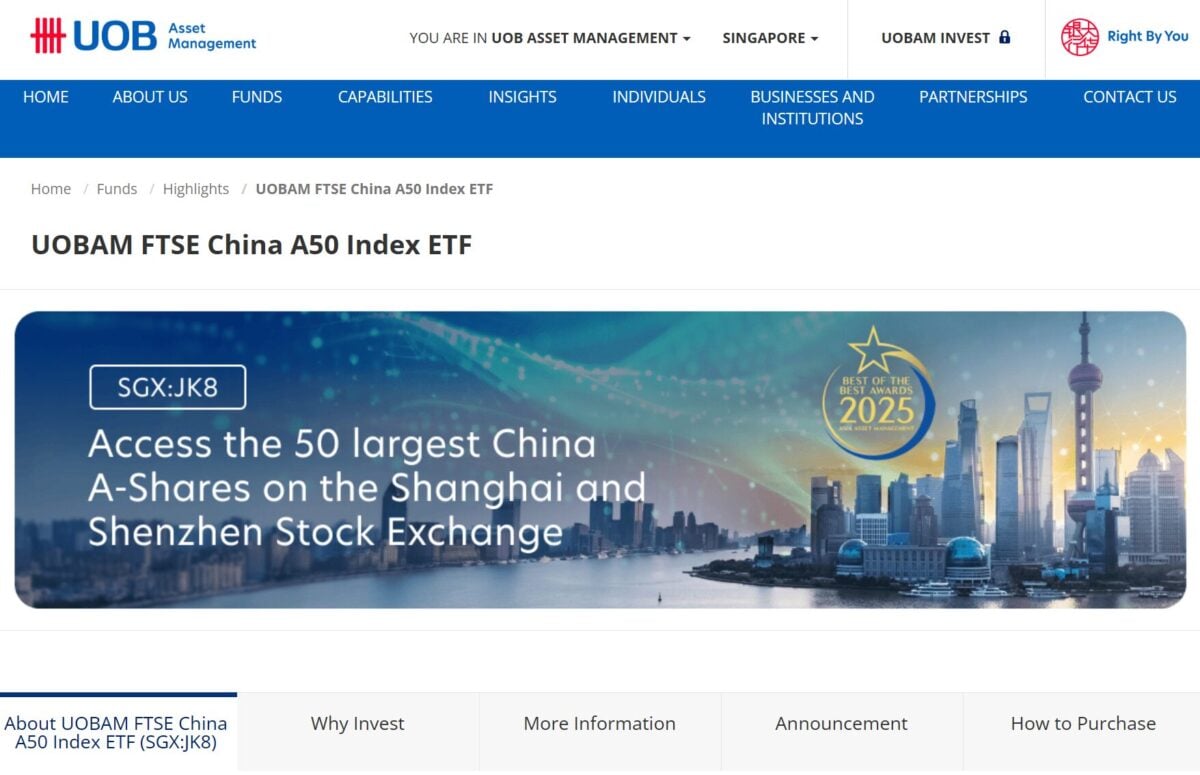
Have you ever considered exploring investment opportunities beyond Singapore’s sunny shores? Look no further than Hong Kong, a financial powerhouse in Asia and a gateway to the expansive Chinese market.
Hong Kong boasts well-established financial markets that provide a transparent and regulated environment, offering investors peace of mind. With stringent regulations in place, you can invest confidently, knowing your interests are safeguarded.
Moreover, Hong Kong is a key entry point to the vast and dynamic Chinese market. Many Chinese companies, particularly in the thriving technology sector, are listed on the Hong Kong Stock Exchange.
Through the Singapore Exchange (SGX), you can invest in specific Hang Seng indices, gaining exposure to these high-growth companies and benefiting from China’s remarkable economic momentum.
How To Invest In Hong Kong and China Market Through SGX
As a Singaporean investor, accessing Hong Kong and China stocks is more straightforward than you might imagine, thanks to the extensive connectivity provided by the SGX.
Our local stock exchange offers various options to invest in key indices listed in Hong Kong and other China-focused investment opportunities, all from the convenience of Singapore.
Exchange-Traded Funds (ETFs)
Investing in an ETF is one of the most popular ways to gain exposure to Hong Kong-listed Chinese stocks through the SGX.
SGX offers ETFs that track the performance of specific Hang Seng-related indices, such as the Hang Seng TECH Index and Hang Seng Stock Connect China 80 Index.
For example, one well-known ETF available on SGX is the Lion-OCBC Securities Hang Seng Tech ETF (SGX: HST/HSS), which tracks the performance of the Hang Seng TECH Index. Investing in this can quickly expose you to some of the largest Chinese technology companies listed in Hong Kong.
Another ETF that investors can consider is the Lion-OCBC Securities China Leaders ETF (SGX: YYY/YYR), which tracks the Hang Seng Stock Connect China 80 Index and captures the performance of the 80 largest Stock Connect-eligible Chinese companies.
Here’s a quick comparison between the two ETFs:
| Lion-OCBC Securities Hang Seng TECH ETF | Lion-OCBC Securities China Leaders ETF | |
| Index | Hang Seng TECH index | Hang Seng Stock Connect China 80 index |
| Ticker | HST (SGD), HSS (USD) | YYY (SGD), YYR (RMB) |
| Expense Ratio | 0.57% | 0.62% |
| Dividend Policy | Currently no intention to distribute | Annual distribution at the discretion of the fund manager |
| Top 5 Holdings | Meituan, JD.com, Xiaomi, Alibaba, and Li Auto | Tencent, Kweichow Moutai, Meituan, Contemporary Amperex, and China Construction Bank |
Daily Leveraged Certificates (DLCs)
Daily Leverage Certificates (DLCs) are financial instruments issued by third-party financial institutions. They offer investors bullish or bearish leveraged exposure up to seven times the daily performance of an underlying asset (such as market indices or single stocks).
For instance, if the underlying asset moves by 1% from its closing price of the previous trading day, the value of a 3x DLC will move by 3%, and that of a 7x DLC will move by 7%.
Read Also: 4 Ways Singapore Investors Can Use Daily Leverage Certificates In Your Investment Portfolio
Below is a list of Hong Kong index DLCs listed on SGX:
| Underlying Index | 3x Long | 3x Short | 5x Long | 5x Short | 7x Long | 7x Short |
| Hang Seng Index (HSI) | ✓ | ✓ | ✓ | ✓ | ✓ | ✓ |
| Hang Seng China Enterprises Index (HSCEI) | ✓ | ✓ | ✓ | ✓ | ✓ | ✓ |
| Hang Seng Tech Index (HSTECH) | ✓ | ✓ | ✓ | ✓ | ✓ | ✓ |
Considerations When Investing in the Hang Seng Index Through SGX
While the potential rewards of investing in the Hong Kong market through SGX are enticing, here are some additional factors to keep in mind:
#1 Economic Outlook
The Hang Seng Index’s performance is closely tied to Hong Kong and China’s economies. Investors should monitor factors like China’s gross domestic product (GDP) growth, regulatory policies, and global trade relations.
#2 Geopolitical Risk
Investing in China and Hong Kong involves some level of geopolitical risk. Political developments in China or changes in Hong Kong’s relationship with mainland China could affect the market. If you wish to invest in either Hong Kong or China, it’s worthwhile to stay informed about the political landscape and its potential impact on your investments.
#3 Market Volatility
While China’s economic growth has been strong, the market can also be quite volatile. Factors like government regulations, trade tensions, and global economic conditions can cause sudden market fluctuations. It’s important to assess your risk tolerance and ensure that you’re comfortable with potential ups and downs. For instance, the tech regulation in China has caused considerable worries for investors, leading to volatile markets in recent times. Even more recently, U.S. President-elect Donald Trump’s tax tariff threat on imports from China, among other countries, is roiling the market as well.
Investing in the Hong Kong market through the SGX can be a strategic move for Singaporean investors looking to diversify their portfolios and tap into the exciting potential of Hong Kong and China.
However, remember to approach it with due diligence, manage risk effectively, and choose the right investment vehicle for your needs and risk appetite.
The post Complete Guide To Investing In The Hang Seng Index appeared first on DollarsAndSense.sg.











